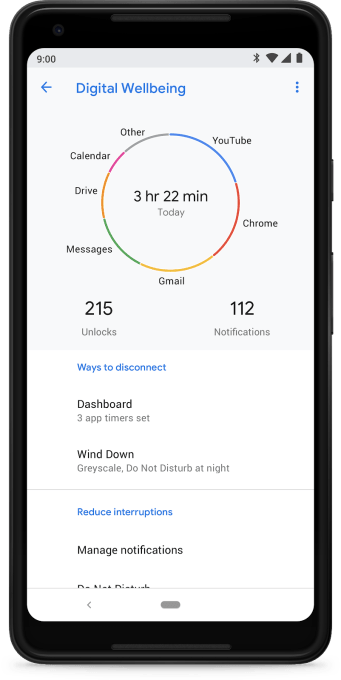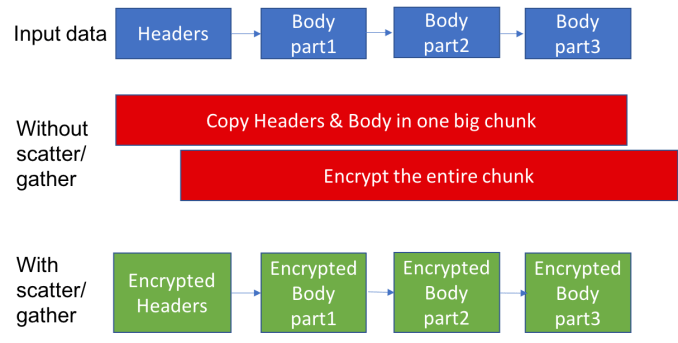A colleague, who shall remain nameless (because privacy is not dead), gave a thumbs down to a recent column in the NYT. The complaint was that the writer had attacked tech companies (mostly but not exclusively Facebook) without offering any solutions for these all-powerful techbro CEOs’ orchestral failures to grasp the messy complexities of humanity at a worldwide scale.
Challenge accepted.
Here’s the thought experiment: Fixing Facebook
We’ll start with Facebook because, while it’s by no means the only tech company whose platform contains a bottomless cesspit of problems, it is the most used social platform in the West; the de facto global monopoly outside China.
And, well, even Zuckerberg’ thinks it needs fixing. Or at least that its PR needs fixing — given he made “Fixing Facebook” his ‘personal challenge’ of the year this year — proof, if any more were needed, of his incredible capacity for sounding tone-deaf.
For a little more context on these annual personal challenges, Zuckerberg once previously set himself the challenge of reading a new book every two weeks. So it seems fair to ask: Is Facebook a 26-book sized fix?
If we’re talking in book metaphor terms, the challenge of fixing Facebook seems at least on the scale of the Library of Alexandria, say, given the volume of human content being daily fenced. It may, more likely, be multiple libraries of Alexandria. Just as, if Facebook content was housed in a physical library, the company would require considerably more real estate that the largest library of the ancient world to house its staggeringly-massive-and-expanding-by-the-second human content collection — which also of course forms the foundation of its business.
Zuckerberg himself has implied that his 2018 challenge — to fix the company he founded years before the iPhone arrived to supercharge the smartphone revolution and, down that line, mobilize Facebook’s societal ‘revolution’ — is his toughest yet, and likely to take at least two or three years before it bears fruit, not just the one. So Facebook’s founder is already managing our expectations and he’s barely even started.
In all likelihood, if Facebook were left alone to keep standing ethically aloof, shaping and distributing information at vast scale while simultaneously denying that’s editing — to enjoy another decade of unforgivably bad judgement calls (so, basically, to ‘self-regulate’; or, as the New York Times put it, for Zuckerberg to be educated at societal expense) — then his 2018 personal challenge would become just ‘Chapter One, Volume One’ in a neverending life’s ‘work-in-progress’.
Great for Mark, far less great for humans and democratic societies all over the world.
Frankly, there has to be a better way. So here’s an alternative plan for fixing Facebook — or at least a few big ideas to get policymakers’ juices flowing… Bear in mind this is a thought exercise so we make no suggestions for how to enact the plan — we’re just throwing ideas out there to get folks thinking.
Step 1: Goodbye network of networks
Facebook has been allowed to acquire several other social communication networks — most notably photo-focused social network Instagram [1BN monthly active users] and messaging app platform WhatsApp [1.5BN] — so Zuckerberg has not just ONE massively popular social network (Facebook: [2.2BN]) but a saccharine suite of eyeball-harvesting machines.
Last month he revealed his sunless empire casts its shadow across a full 2.5BN individuals if you factor in all his apps — albeit, that was an attempt to distract investors from the stock price car crash conference call that was to follow. But the staggering size of the empire is undeniable.
So the first part of fixing Facebook is really simple: No dominant social network should be allowed to possess (or continue to possess) multiple dominant social networks.
There’s literally no good argument for why this is good for anyone other than (in Facebook’s case) Zuckerberg and Zuckerberg’s shareholders. Which is zero reason not to do something that’s net good for the rest of humanity. On one level it’s just basic math.
Setting aside (for just a second) the tangible damages inflicted upon humans by unregulated social media platforms with zero editorial values and a threadbare minimum of morality which wafts like gauze in the slipstream of supercharged and continuously re-engineered growth and engagement engines that DO NOT FACTOR HUMAN COST into their algorithmic calculations — allowing their masters to preside over suprasocietal revenue stripping mega-platforms — which, to be clear, is our primary concern here — the damage to competition and innovation alone from Zuckerberg owning multiple social networks is both visible and quantifiable.
Just ask Snapchat. Because, well, you can’t ask the social networks that don’t exist because Zuckerberg commands a full flush of attention-harvesting networks. So take a good, long, hard look at all those Stories clones he’s copypasted right across his social network of social networks. Not very innovative is it?
And even if you don’t think mega-platforms cause harm by eroding civic and democratic values (against, well, plenty of evidence to the contrary), if you value creativity, competition and consumer choice it’s equally a no brainer to tend your markets in a way that allows multiple distinct networks to thrive, rather than let one megacorp get so powerful it’s essentially metastasized into a Borg-like entity capable of enslaving and/or destroying any challenger, idea or even value in its path. (And doing all that at the same time as monopolizing its users’ attention.)
We see this too in how Facebook applies its technology in a way that seeks to reshape laws in its business model’s favor. Because while individuals break laws, massively powerful megacorps merely lean their bulk to squash them into a more pleasing shape.
Facebook is not just spending big on lobbying lawmakers (and it sure is doing that), it’s using technology and the brute force of its platform to pound on and roll over the rule of law by deforming foundational tenets of society. Privacy being just one of them.
And it’s not doing this reshaping for the good of humanity. Oh no. While democratic societies have rules to protect the vulnerable and foster competition and choice because they are based on recognizing value in human life, Facebook’s motives are 100% self-interested and profit-driven.
The company wants to rewrite rules globally to further expand its bottom line. Hence its mission to pool all humans into a single monetizable bucket — no matter if people don’t exactly mesh together because people aren’t actually bits of data. If you want to be that reductive make soup, not a “global community”.
So step one to fixing Facebook is simple: Break up Zuckerberg’s empire.
In practical terms that means forcing Facebook to sell Instagram and WhatsApp — at a bare minimum. A single network is necessarily less potent than a network of networks. And it becomes, at least theoretically possible for Facebook to be at risk from competitive forces.
You would also need to at keep a weather eye on social VR, in case Oculus needs to be taken out of Zuckerberg’s hands too. There’s less of an immediate imperative there, certainly. This VR cycle is still as dead as the tone of voice the Facebook founder used to describe the things his avatar was virtually taking in when he indulged in a bit of Puerto Rico disaster tourism for an Oculus product demo last year.
That said, there’s still a strong argument to say that Facebook, the dominant force of the social web and then the social mobile web, should not be allowed to shape and dictate even a nascent potential future disruptor in the same social technology sphere.
Not if you value diversity and creativity — and, well, a lot more besides.
But all these enforced sells-offs would just raise lots more money for Facebook! I hear you cry. That’s not necessarily a bad thing — so long as it gets, shall we say, well spent. The windfall could be used to fund a massive recruitment drive to properly resource Facebook’s business in every market where it operates.
And I do mean MASSIVE. Not the ‘10,000 extra security and moderation staff’ Facebook has said will hire by the end of this year (raising the headcount it has working on these critical tasks to around 20k in total).
To be anywhere near capable of properly contextualizing content across a platform that’s actively used by 2BN+ humans — and therefore to be able to rapidly and effectively spot and quash malicious manipulation, hateful conduct and so on, and thus responsibly manage and sustain a genuine global ‘community’ — the company would likely need to add hundreds of thousands of content reviewers/moderators. Which would be very expensive indeed.
Yet Facebook paid a cool $19BN for WhatsApp back in 2014 — so an enforced sell off of its other networks should raise a truck tonne of cash to held fund a vastly larger ‘trust and safety’ personnel bill. (While AI systems and technologies can help with the moderation challenge, Zuckerberg himself has admitted that AI alone won’t scale to the content challenge for “many years” to come — if indeed it can scale at all.)
Unfortunately there’s another problem though. The human labor involved in carrying out content moderation across Facebook’s 2BN+ user mega-platform is ethically horrifying because the people who Facebook contracts for ‘after the fact’ moderation necessarily live neck deep in its cesspit. Their sweating toil is to keep paddling the shit so Facebook’s sewers don’t back up entirely and flood the platform with it.
So, in a truly ideal ‘fixed Facebook’ scenario, there wouldn’t be a need for this kind of dehumanizing, industrialized content review system — which necessitates that eyes be averted and empathy disengaged from any considerations of a traumatized ‘clean up’ workforce.
Much like Thomas Moore’s Utopia, Zuckerberg’s mega-platform requires an unfortunate underclass of worker doing its dirty work. And just as the existence of slaves in Utopia made it evident that the ‘utopian vision’ being presented was not really all it seemed, Facebook’s outsourced teams of cheap labor — whose day job is to sit and watch videos of human beheadings, torture, violence etc; or make a microsecond stress-judgement on whether a piece of hate speech is truly hateful enough to be rendered incapable of monetization and pulled from the platform — the awful cost on both sides of that human experience undermines Zuckerberg’s claim that he’s “building global community”.
Moore coined the word ‘utopia’ from the Greek — and its two components suggest an intended translation of ‘no place’. Or perhaps, better yet, it was supposed to be a pun — as Margaret Atwood has suggested — meaning something along the lines of ‘the good place that simply doesn’t exist’. Which might be a good description for Zuckerberg’s “global community”.
So we’ll come back to that.
Because the next step in the plan should help cut the Facebook moderation challenge down to a more manageable size…
Step 2) Break up Facebook into lots of market specific Facebooks
Instead of there being just one Facebook (comprised of two core legal entities: Facebook USA and Facebook International, in Ireland), it’s time to break up Facebook’s business into hundreds of market specific Facebooks that can really start to serve their local communities. You could go further still and subdivide at a state, county or community level.
A global social network is an oxymoron. Humans are individuals and humanity is made up of all sorts of peoples, communities and groupings. So to suggest the whole of humanity needs to co-exist on the exact same platform, under the exact same overarching set of ‘community standards’, is — truly — the stuff of megalomaniacs.
To add insult to societal and cultural injury, Facebook — the company that claims it’s doing this (while ignoring the ‘awkward’ fact that what it’s building isn’t functioning equally everywhere, even in its own backyard) — has an executive team that’s almost exclusively white and male, and steeped in a very particular Valley ‘Kool Aid’ techno-utopian mindset that’s wrapped in the U.S. flag and bound to the U.S. constitution.
Which is another way of saying that’s the polar opposite of thinking global.
Facebook released its fifth annual diversity report this year which revealed it making little progress in increasing diversity over the past five years. In senior leadership roles, Facebook’s 2018 skew is 70:30 male female, and a full 69.7% white. While the company was fully 77% male and 74% white in 2014.
Facebook’s ongoing lack of diversity is not representative of the U.S. population, let alone reflective of the myriad regions its product reaches around the planet. So the idea that an executive team with such an inexorably narrow, U.S.-focused perspective could meaningfully — let alone helpfully — serve the whole of humanity is a nonsense. And the fact that Zuckerberg is still talking in those terms merely spotlights an abject lack of corporate diversity and global perspective at his company.
If he genuinely believes his own “global community” rhetoric he’s failing even harder than he looks. Most probably, though, it’s just a convenient marketing label to wallpaper the growth strategy that’s delivered for Facebook’s shareholders for years — by the company pushing into and dominating international markets.
Yet, and here’s the rub, without making commensurate investments in resourcing its business in international markets….
This facet of Facebook’s business becomes especially problematic when you consider how the company has been pouring money into subsidizing (or seeking to) Internet access in emerging markets. So it is spending lots and lots of money, just not on keeping people safe.
Initially, Facebook spent money to expand the reach of its platform via its Internet.org ‘Free Basics’ initiative which was marketed as a ‘humanitarian’, quasi-philanthropic mission to ‘wire the world’ — though plenty of outsiders and some target countries viewed it not as charity but as a self-serving and competitive-crushing business development tactic. (Including India — which blocked Free Basics, but not before Facebook had spent millions on ads trying to get locals to lobby the regulator on its behalf).
More recently it’s been putting money into telecom infrastructure a bit less loudly — presumably hoping a less immediately self-serving approach to investing in infrastructure in target growth markets will avoid another highly politicized controversy.
It’s more wallpapering though: Connectivity investments are a business growth strategy predicated on Facebook removing connectivity barriers that stand in the way of Facebook onboarding more eyeballs.
And given the amounts of money Facebooks has been willing to spend to try to lodge its product in the hands of more new Internet users — to the point where, in some markets, Facebook effectively is the Internet — it’s even less forgivable that the company has failed to properly resource its international operations and stop its products from having some truly tragic consequences.
The cost to humanity for Facebook failing to operate with due care is painfully visible and horribly difficult to quantify.
Not that Zuckerberg has let those inconvenient truths stop him from continuing to suggest he’s the man to build a community for the planet. But again that rather implies Facebook’s problems grow out of Facebook’s lack of external perspective.
Aside from the fact that we are all equally human, there is no one homogenous human community that spans the entire world. So when Zuckerberg talks about Facebook’s ‘global community’ he is, in effect, saying nothing — or saying something almost entirely meaningless as to render down to a platitudinous sludge. (At least unless his desire is indeed a Borg-esque absorption of other cultures — into a ‘resistance is futile’ homogenous ‘Californormification’ of the planet. And we must surely hope it’s not. Although Facebook’s Free Basics have been accused of amounting to digital colonialism.)
Zuckerberg does seem to have quasi-realized the contradiction lurking at the the tin heart of his ‘global’ endeavor, though. Which is why he’s talked suggestively about creating a ‘Supreme Court of Facebook‘ — i.e. to try to reboot the pitifully unfit for purpose governance structure.
But talk of ‘community-oriented governance’ has neither been firmed up nor formalized into a tangible structural reform plan.
While the notion of a Supreme Court of Facebook, especially, does risk sounding worryingly like Zuckerberg fancies his own personal Star Chamber, the fact he’s even saying this sort of stuff shows he knows Facebook has planet-straddling problems that are far, far too big for its minimalist Libertarian ‘guardrails’ to manage or control. And in turn that suggests the event horizon of scaling Facebook’s business model has been reached.
Aka: Hello $120BN market cap blackhole.
“It’s just not clear to me that us sitting in an office here in California are best placed to always determine what the policies should be for people all around the world,” Zuckerberg said earlier THIS YEAR — 2018! — in what must surely count as the one of the tardiest enlightenments of a well educated public person in the Western world, period.
“I’ve been working on and thinking through,” he continued his mental perambulation. “How can you set up a more democratic or community-oriented process that reflects the values of people around the world?”
Well, Mark, here’s an idea to factor into your thinking: Facebook’s problem is Facebook’s massive size.
So why not chop the platform up into market specific operations that are free to make some of their own decisions and let them develop diverse corporate cultures of their own. Most importantly empower them to be operationally sensitive to the needs of local communities — and so well placed to responsively serve them.
Imagine the Facebook brand as a sort of loose ‘franchise’, with each little Facebook at liberty to intelligently adapt the menu to local tastes. And each of these ‘content eateries’ taking pride in the interior of its real estate, with dedicated managers who make their presence felt and whose jobs are to ensure great facilities but no violent food fights.
There would also need to be some core principles too, of course. A set of democratic and civic values that all the little Facebooks are bound to protect — to push back against attempts by states or concerted external forces seeking to maliciously hijack and derail speech.
But switch around the current reality — a hulkingly massive platform attached to a relatively tiny (in resources terms) business operation — and the slavering jabberwocky that Zuckerberg is now on a personal mission to slay might well cease to exist, as multiple messy human challenges get cut down to a more manageable size. Not every single content judgement call on Facebook needs to scale planet-wide.
Multiple, well resourced market-specific Facebooks staffed locally so they can pro-actively spot problems and manage their communities would not be the same business at all. Facebook would become an even more biodiverse ecosystem — of linked but tonally distinct communities — which could even, in time, diverge a bit on the feature front, via adding non-core extras, based on market specific appetites and tastes.
There would obviously have to be basic core social function interoperability — so that individual users of different Facebooks could still connect and communicate. But beyond a bit of interplay (a sort of ‘Facebook Basics’) why should there be a requirement that everyone’s Facebook experience be exactly the same?
While Facebook talks as if it has a single set of community standards, the reality is fuzzier. For example it applies stricter hate speech rules to content moderation in a market like Germany, which passed a social media hate speech law last year. Those sorts of exceptions aren’t going to go away either; as more lawmakers wake up to the challenges posed by the platform it’s clear more demands will be placed on Facebook to regulate the content on the platform.
So, Zuckerberg, why not step actively into a process of embracing greater localization — in a way that’s sensitive to cultural and societal norms — and use the accrued political capital from that to invest in defending the platform’s core principles?
This approach won’t work in every market, clearly. But allowing for a greater tonality of content — a more risqué French Facebook, say, vs the ‘no-nipples please’ U.S. flavor — coupled with greater sensitivity to market mood and feedback could position Facebook to work with democracies and strengthen civic and cultural values, instead of trying to barge its way along by unilaterally imposing the U.S. constitution on the rest of the planet.
Facebook as it is now, globally scaled but under-resourced, is not in a position to enforce its own community standards. It only does so when or if it receives repeat complaints (and even then it won’t always act on them).
Or when a market has passed legislation enforcing action with a regime of fines (a recent report by a UK parliamentary committee, examining the democratic implications of social media fueled disinformation, notes that one in six of Facebook’s moderators now works in Germany — citing that as “practical evidence that legislation can work”).
So there are very visible cracks in both its claim to be “building global community” or even that it has community standards at all, given it doesn’t pro-actively enforce them (in most markets). So why not embrace a full fragmentation of its platform — and let a thousand little blue ships set sail!
And if Facebook really wants one community principle to set as its pole star, one rule to rule them all (and to vanquish its existential jabberwocky), it should swear to put life before data.
Locally tuned, culturally sensitive Facebooks that stand up for democratic values and civic standards should also help rework the moderation challenge — removing the need for Facebook to have the equivalent of sweat shops based on outsourcing repeat human exposure to violent and toxic content.
This element is one of the ugliest sides of the social media platform business. But with empowered, smaller businesses operating in closer proximities to the communities being served, Facebook stands a better chance of getting on top of its content problems — and getting out of a reactive crisis mode, piled high with problems, where it’s currently stuck. Instead it could take up a position in the community intelligence vanguard where its workforce can root out damaging abuse before it can go viral, metastasize and wreak wider societal harms.
Proper community management could also, over time, encourage a more positive sharing environment to develop — where posting hateful stuff doesn’t get rewarded with feedback loops. Certainly not algorithmically, as it indeed has been.
As an additional measure, a portion of the financial windfall gained from selling off Facebook’s other social networks could be passed directly to independent trustees appointed to the Chan Zuckerberg Foundation for spending on projects intended to counter the corrosive effects of social media on information veracity and authenticity — such as by funding school age educational programs in critical thinking.
Indeed, UK lawmakers have already called for a social media levy for a similar purpose.
Step 3) Open the black boxes
There would still be a Facebook board and a Facebook exec team in a head office in California sitting atop all these community-oriented Facebooks — which, while operationally liberated, would still be making use of its core technology and getting limited corporate steerage. So there would still be a need for regulators to understand what Facebook’s code is doing.
Algorithmic accountability of platform technologies is essential. Regulators need to be able to see the inputs underlying the information hierarchies that these AI engines generate, and compare those against the outputs of that shaping. Which means audits. So opening the commercial black boxes — and the data holdings — to regulatory oversight.
Discrimination is easier to get away with in darkness. But Mega-platforms have shielded their commercial IP from public scrutiny and it’s only when damaging effects have surfaced in the public consciousness that users have got a glimpse of what’s been going on.
Facebook’s defense has been to say it was naive in the face of malicious activity like Russian-backed election meddling. That’s hardly an argument for more obscurity and more darkness. If you lack awareness and perspective, ask for expert help Mark.
Lawmakers have also accused the company of willfully obstructing good faith attempts at investigating scandals such as Cambridge Analytica data misuse, Kremlin-backed election interference, or how foreign money flowed into its platform seeking to influence the UK’s Brexit referendum result, in just a few of multiple examples.
Willful obstruction to good faith, democratically minded political interrogation really isn’t a sustainable strategy. Nor an ethically defensible one.
Given the vast, society-deforming size of these platforms politicians are simply not just going to give up and go home. There will have to be standards to ensure these mega-powerful information distribution systems aren’t at risk of being gamed or being biased or otherwise misused. And those standards will have to be enforced. The enforcement must also be checked and verified. So, yes, yet more audits.
Mega-platforms have also benefited from self-sustaining feedback loops based on their vast reach and data holdings, allowing them to lock in and double down on a market dominating position by, for example, applying self-learning algorithms trained on their own user data or via A/B testing at vast, vast scale to optimize UX design to maximize engagement and monopolize attention.
User choice in this scenario is radically denuded, and competition increasingly gets pushed back and even locked out, without such easy access to equivalently massive pools of data.
If a mega-platform has optimized the phasing and positioning of — for example — a consent button by running comparative tests to determine which combination yields the fewest opt outs, is it fair or right to the user being asked to ‘choose’? Are people being treated with respect? Or, well, like lab rats?
Breaking Facebook’s platform into lots of Facebooks could also be an opportunity to rethink its data monopoly. To argue that its central business should not have an absolute right to the data pool generated by each smaller, market specific Facebook.
Part of the regulatory oversight could include a system of accountability over how Facebook’s parent business can and cannot use pooled data holdings.
If Facebook’s executive team had to make an ethics application to a relevant regulatory panel to request and justify access each time the parent business wanted to dip into the global data pool or tap data from a particular regional cluster of Facebooks, how might that change thought processes within the leadership team?
Facebook’s own (now former) CSO, Alex Stamos, identified problems baked into the current executive team’s ‘business as usual’ thinking — writing emphatically in an internal memo earlier this year: “We need to build a user experience that conveys honesty and respect, not one optimized to get people to click yes to giving us more access. We need to intentionally not collect data where possible, and to keep it only as long as we are using it to serve people… We need to be willing to pick sides when there are clear moral or humanitarian issues. And we need to be open, honest and transparent about challenges and what we are doing to fix them.”
It seems very unlikely that an application to the relevant regulators asking for ‘Europe-wide data so we can A/B test user consent flows to get more Europeans to switch on facial recognition‘ would pass the ‘life before data’ community standard litmus test.
And, well, it’s well established that the fact of being watched and knowing it’s happening has the power to change behavior. After all, Facebook’s platform is a major testament to that.
So it may be more that it’s external guidance — rather than a new internal governance model — which Facebook sorely lacks. Some external watchers to watch its internal watchmen.
Step 4) Remove Zuckerberg from (his) office
Public companies are supposed to be answerable to their shareholders. Thanks to the share structure that Mark Zuckerberg put in place at Facebook, Mark Zuckerberg is answerable to no one except himself. And despite Facebook’s years of scandals, he does not appear to have ever felt the urge to sack himself.
When the idea of personal accountability was brought up with him, in a recent podcast interview with Kara Swisher, he had a moment of making a light joke of it — quipping “do you really want me to fire myself right now? For the news?” before falling back on his line that: “I think we should do what’s gonna be right for the community.”
And, you know what, the joke was exactly right: The idea that Zuckerberg would terminate his own position is both laughable and ludicrous. It is a joke.
Which means Facebook’s executive structure is also a joke because there is zero accountability at the highest level — beyond Mark’s personal threshold for shame or empathy — and that’s now a global problem.
Zuckerberg has more power than most of the world’s elected politicians (and arguably some of the world’s political leaders). Yet he can’t be kicked out of his office, nor lose his CEO seat at any ballot box. He’s a Facebook fixture — short of a literal criminal conviction or otherwise reputation terminating incident.
While you could argue that not being answerable to the mercenary whims of shareholder pressure is a good thing because it frees Zuckerberg to raise business transformation needs above returns-focused investor considerations (albeit, let’s see how his nerve holds after that $120BN investor punch) — his near 15-year record in the CEO’s chair counters any suggestion that he’s a person who makes radical and sweeping changes to Facebook’s modus operandi.
On the contrary, he’s shown himself a master of saying ‘oops we did it again!’ and then getting right back to ‘screwing things up’ as usual. That’s either rank incompetence or intention.
He’s also demonstrated a consistent disbelief that Facebook’s platform creates problems — preferring to couch connecting people as a glorious humanitarian mission from whence life-affirming marriages and children flow. Rather than seeing risks in putting global megaphones in the hands of anyone with an urge to shout.
As recently as November 2016 he was still dismissing the idea that political disinformation spread via Facebook had been in any way impactful on the US presidential election — as a “pretty crazy idea” — yet his own business had staffed divisions dedicated to working with US politicians to get their campaign messages out. It shouldn’t be rocket science to see a contradiction there. But until very recently Zuckerberg apparently couldn’t.
The fact of him also being the original founder of the business does not help in the push for disruptive change to Facebook itself. The best person to fix a radically broken product is unlikely to be the person whose entire adult life has been conjoined to a late night college dorm room idea spat online — and which, through him sticking and sticking with it, ended up spinning up and out into a fortune. And then into a major, major global mess.
The ‘no better person than me to fix it’ line can also be countered by pointing to Zuckerberg’s personal history of playing fast and loose with other people’s data (from the “dumb fucks” comment all the way back in his student days to years of deliberate platform choices at Facebook that made people’s information public by default); and by suggesting entrenched challenges would surely benefit from fresh eyes, new thinking and a broader perspective.
Add to that, Zuckerberg has arguably boxed himself in, politically speaking, thanks to a series of disingenuous, misleading and abstruse claims and statements made to lawmakers — limiting his room for manoeuvre or for rethinking his approach; let alone being able to genuinely compromise or make honest platform changes.
His opportunity to be radically honest about Facebook’s problems probably passed years and years back — when he was busy working hard on his personal challenge to wear a tie everyday [2009]. Or only eat animals he kills himself [2011].
By 2013’s personal challenge, it’s possible that Zuckerberg had sensed something new in the data stream that might be coming down the pipes towards him — as he set himself the challenge of expanding his personal horizons (not that he put it that way) by “meeting a new person every day who does not work at Facebook”.
Meeting a new person every day who did work at Facebook would have been far too easy, see.
Is it even possible to think outside the box when your entire adult life has been spent tooling away inside the same one?
Step 5) Over to you…
What are your radical solutions for fixing Facebook? Should Zuckerberg stay or should he go? What do you want lawmakers to do about social media? What kinds of policy interventions might set these mega-platforms on a less fractious path? Or do you believe all this trouble on social media is a storm in a teacup that will blow over if we but screw our courage to the sticking place and wait for everyone to catch up with the cardinal Internet truth that nothing online is what it seems…
Ideas in the comments pls…

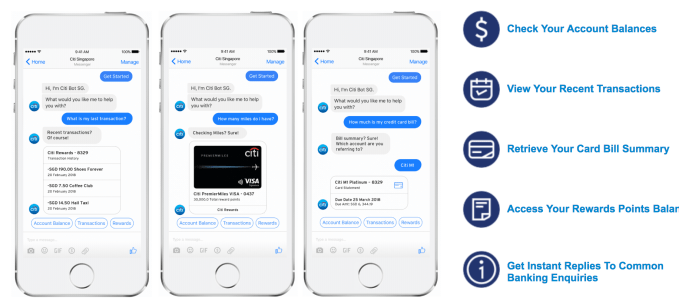
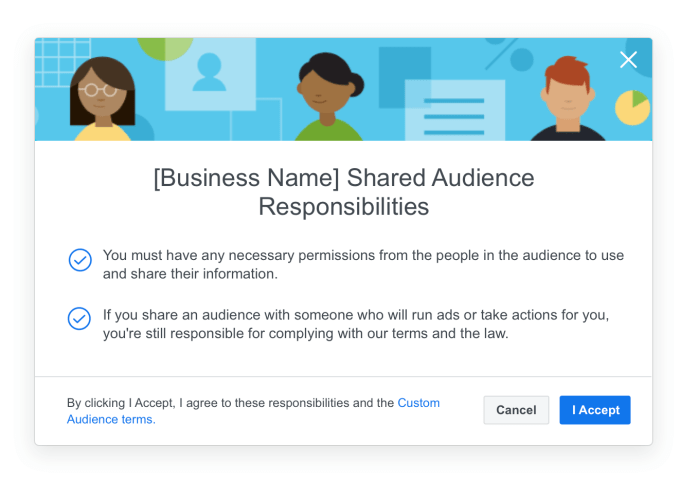
 Facebook has recently cracked down on the use of data brokers that suck in public and purchased data sets for ad targeting. It no longer lets data brokers upload Managed Custom Audience lists of user contact info or power Partner Categories for targeting ads based on interests. It also more admantly demands that advertisers have the consent of users whose email addresses or phone numbers they upload for Custom Audience targeting, though Facebook does little to verify that consent and advertisers could still buy data sets from brokers and upload them themselves.
Facebook has recently cracked down on the use of data brokers that suck in public and purchased data sets for ad targeting. It no longer lets data brokers upload Managed Custom Audience lists of user contact info or power Partner Categories for targeting ads based on interests. It also more admantly demands that advertisers have the consent of users whose email addresses or phone numbers they upload for Custom Audience targeting, though Facebook does little to verify that consent and advertisers could still buy data sets from brokers and upload them themselves.
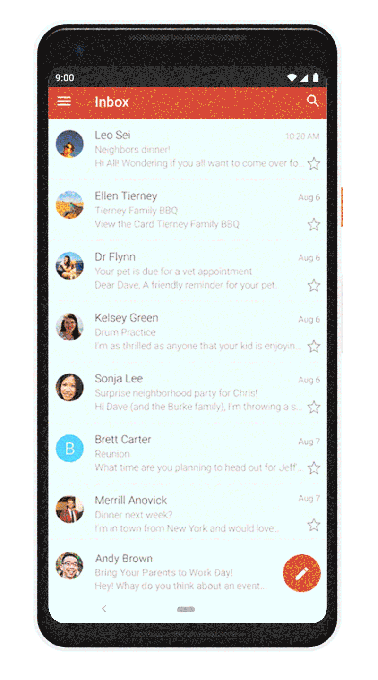 Let’s talk about the features you’ll get when you update to Android 9 Pie, though. The most obvious sign that you have updated to the new version is the new system navigation bar, which replaces the standard three-icon navigation bar that has served Android users well for the last couple of iterations. The new navigation bar replaces the three icons (back, home, overview) that are virtually always on screen with a more adaptive system and a home button that now lets you swipe to switch between apps (instead of tapping on the overview button). You can also now swipe up on the home button and see full-screen previews of the apps you used recently, as well as the names of a few apps that Google thinks you’ll want to use. A second up-swipe and you get to the usual list of all of your installed apps.
Let’s talk about the features you’ll get when you update to Android 9 Pie, though. The most obvious sign that you have updated to the new version is the new system navigation bar, which replaces the standard three-icon navigation bar that has served Android users well for the last couple of iterations. The new navigation bar replaces the three icons (back, home, overview) that are virtually always on screen with a more adaptive system and a home button that now lets you swipe to switch between apps (instead of tapping on the overview button). You can also now swipe up on the home button and see full-screen previews of the apps you used recently, as well as the names of a few apps that Google thinks you’ll want to use. A second up-swipe and you get to the usual list of all of your installed apps.
